The health facility also offers outpatient services, ambulance services, and laboratory testing. It also provides maternity as well as maternal childcare services.
The personnel at the health facility work against many odds, including the high levels of insecurity in Kenya’s Baringo County, the poor road network and inaccessibility of most areas, and high levels of poverty and ignorance among the people who prefer traditional medication to modern healthcare services.
In a past interview with ACI Africa, Br. Sebastian Oteng’ele, a nurse at TDMP said that when he started working at the health facility, patients were only brought in for treatment after all traditional ways of treatment failed.
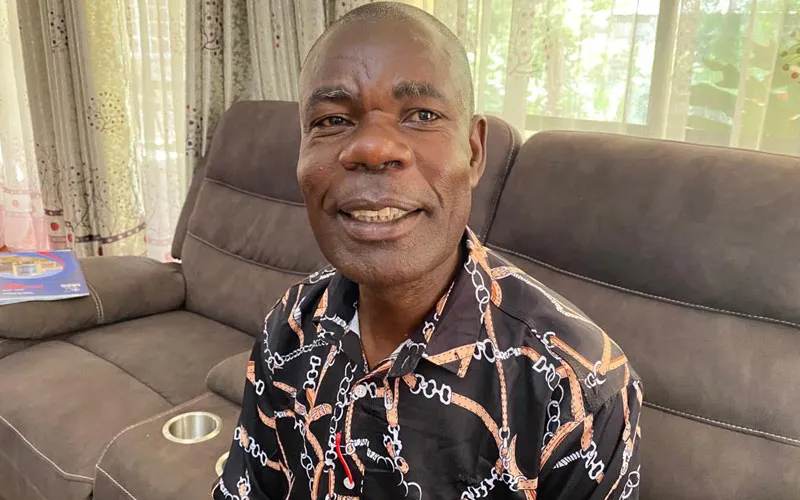 Br. Sebastian Oteng’ele of the Brothers of St. Joseph (BSJ), a nurse at Tangulbei Divisional Medical Programme (TDMP), a Catholic Mission Dispensary at St. Luke, Tangulbei Catholic Mission in Kenya's Nakuru Diocese. Credit: ACI Africa
Br. Sebastian Oteng’ele of the Brothers of St. Joseph (BSJ), a nurse at Tangulbei Divisional Medical Programme (TDMP), a Catholic Mission Dispensary at St. Luke, Tangulbei Catholic Mission in Kenya's Nakuru Diocese. Credit: ACI Africa
“There were times that people brought in patients with blood smeared all over their bodies. Sometimes, a pregnant woman who had trouble giving birth would be brought to the Clinic with fresh animal intestines wrapped around her neck and wrists. The people performed their rituals before deciding to bring any of their patients to the hospital,” Br. Sebastian told ACI Africa in January 2021.
(Story continues below)
The Kenyan member of the Brothers of St. Joseph (BSJ) said that most of the time, patients were delayed at home during the traditional medical interventions and when they were eventually brought to the clinic, it would be too late. Many of them died before they were treated.
He said that over the years the Pokot have become increasingly open to treatment at the hospital. Some, with ailments as simple as a headache caused by stress, walk for miles to seek treatment at the Dispensary.

Patients check into the health facility with various ailments including malaria, respiratory diseases, urinary tract infections, diarrhea, and skin infections, among other health challenges.
“Malaria is the most prevalent disease in Tangulbei,” Br. Sebastian told ACI Africa, explaining that the disease is transmitted by the mosquitoes found in water dams that surround the settlement.
As for respiratory complications, the BSJ member explained that Tangulbei residents become sick because they spend nights out in the cold.
“Here, not everyone spends the night in the house. Young boys and men spend the night out in the cold in the mountains while the little huts are reserved for children and women. For people born in a hot climate, any slight change in climate affects their health badly,” he said.
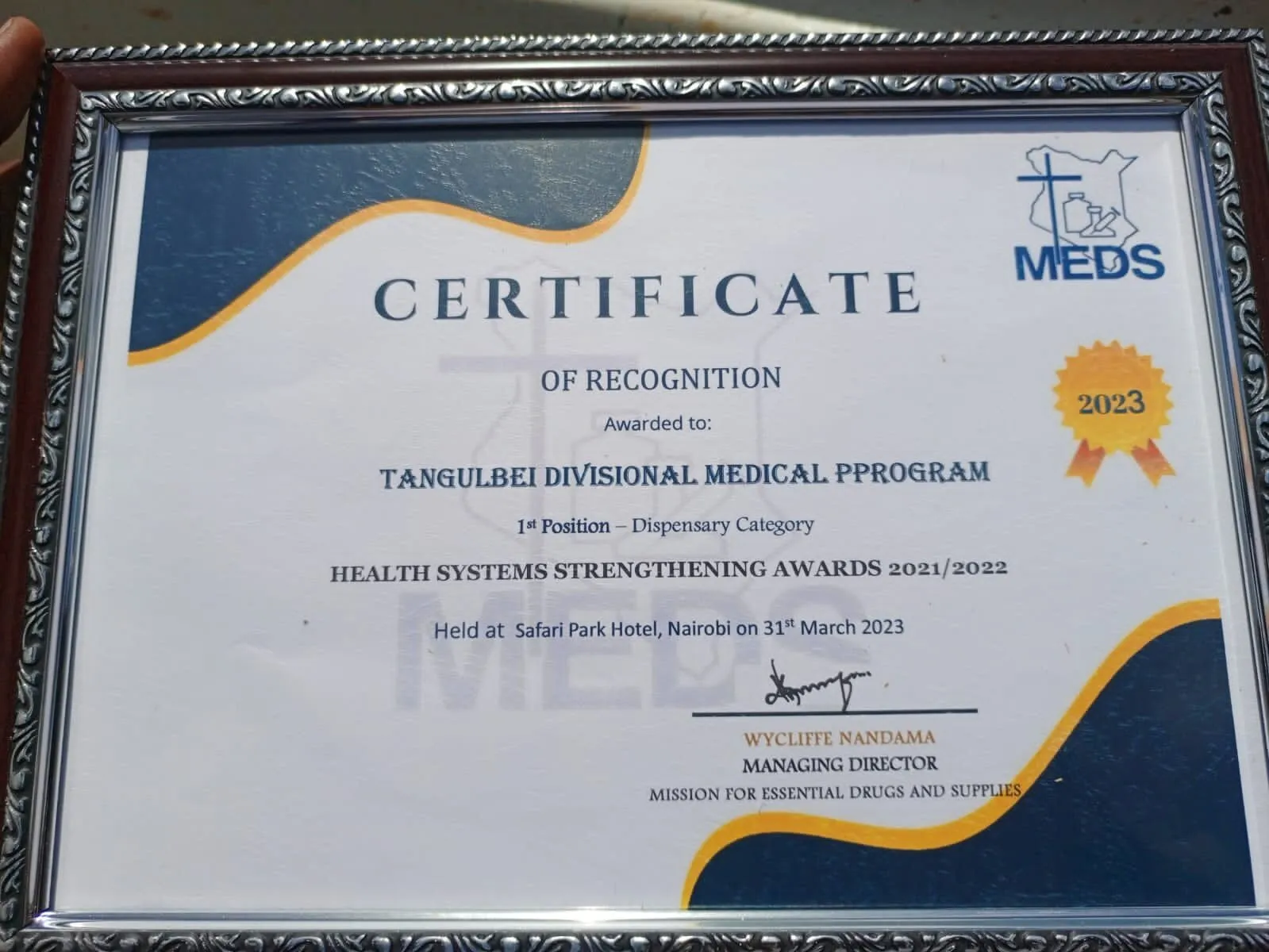 Credit: ACI Africa
Credit: ACI Africa
Owing to the lack of clean water, the Pokot who walk as far as 50 kilometers in search of the valuable commodity also suffer from diarrhea and other poor hygiene complications. Extreme heat is responsible for the skin infections they come with at the clinic.
The Pokot are a marginalized tribe in Kenya and are among the poorest in the country. Most of them cannot afford medication, Fr. Atugba has said, and adds, “They find it difficult to spend the little they have in a hospital. But we never turn anyone who comes seeking treatment away. We treat most of them free of charge since we are a Church entity and we are not into making profits.”
In the April 3 interview with ACI Africa, Fr. Atugba foresees a time when the health facility will achieve 100 percent hospital deliveries in Tangulbei.
“At the moment, only three out of the 10 women that attend their antenatal clinics come to deliver at the health facility. With enough sensitization about the dangers of delivering at home, we hope to see all the 1000 or so women who come for their clinics come to deliver at the dispensary, and not just 300,” the Spiritan Priest said.
Agnes Aineah is a Kenyan journalist with a background in digital and newspaper reporting. She holds a Master of Arts in Digital Journalism from the Aga Khan University, Graduate School of Media and Communications and a Bachelor's Degree in Linguistics, Media and Communications from Kenya's Moi University. Agnes currently serves as a journalist for ACI Africa.
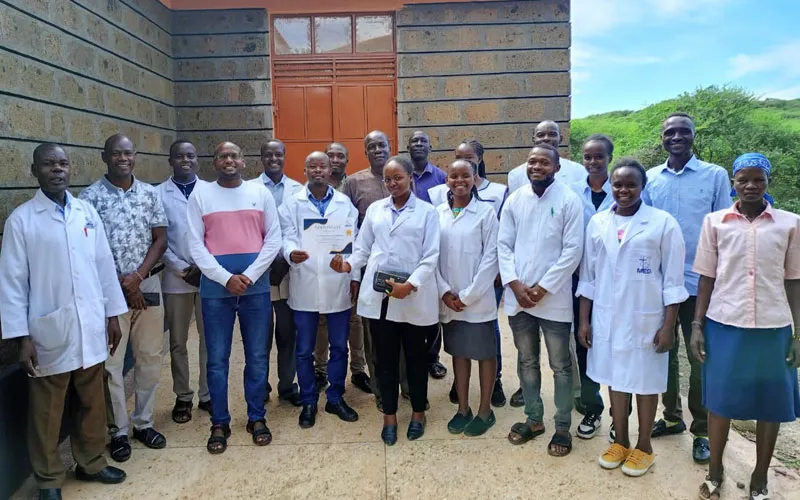



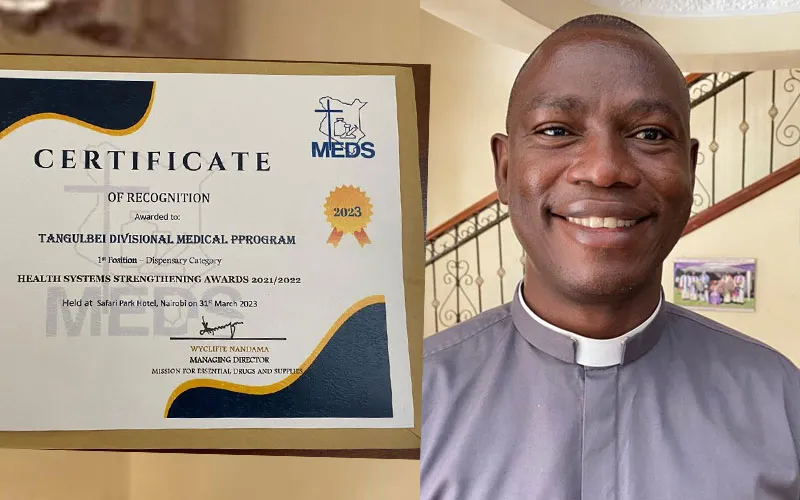
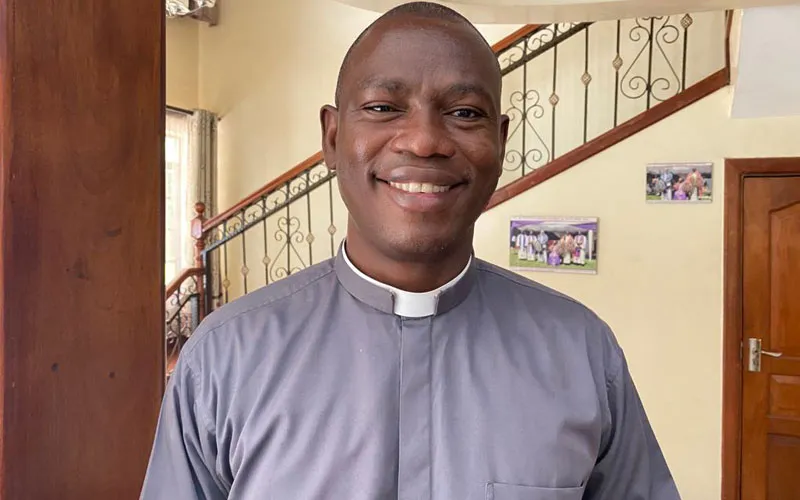 Fr. Maxwell Atugba, member of the Spiritans who is in charge of St. Luke, Tangulbei Catholic Mission in Kenya's Nakuru Diocese. Credit: ACI Africa
Fr. Maxwell Atugba, member of the Spiritans who is in charge of St. Luke, Tangulbei Catholic Mission in Kenya's Nakuru Diocese. Credit: ACI Africa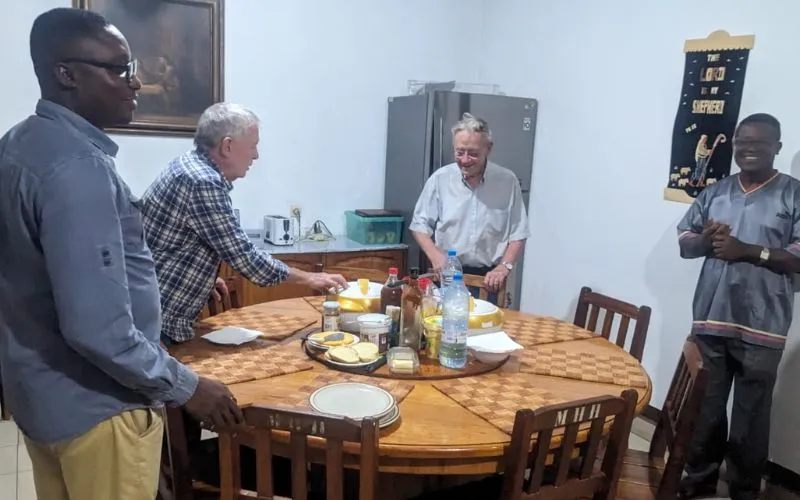
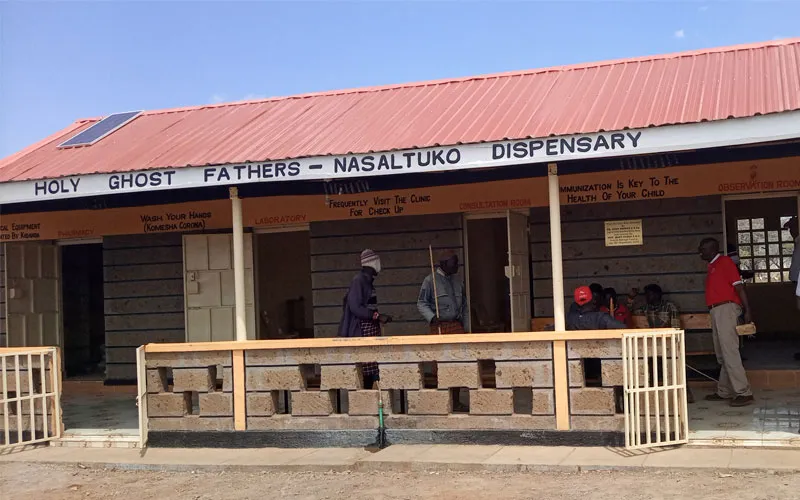 Nasaltuko Dispensary. Credit: Courtesy Photo
Nasaltuko Dispensary. Credit: Courtesy Photo Br. Sebastian Oteng’ele of the Brothers of St. Joseph (BSJ), a nurse at Tangulbei Divisional Medical Programme (TDMP), a Catholic Mission Dispensary at St. Luke, Tangulbei Catholic Mission in Kenya's Nakuru Diocese. Credit: ACI Africa
Br. Sebastian Oteng’ele of the Brothers of St. Joseph (BSJ), a nurse at Tangulbei Divisional Medical Programme (TDMP), a Catholic Mission Dispensary at St. Luke, Tangulbei Catholic Mission in Kenya's Nakuru Diocese. Credit: ACI Africa
 Credit: ACI Africa
Credit: ACI Africa


